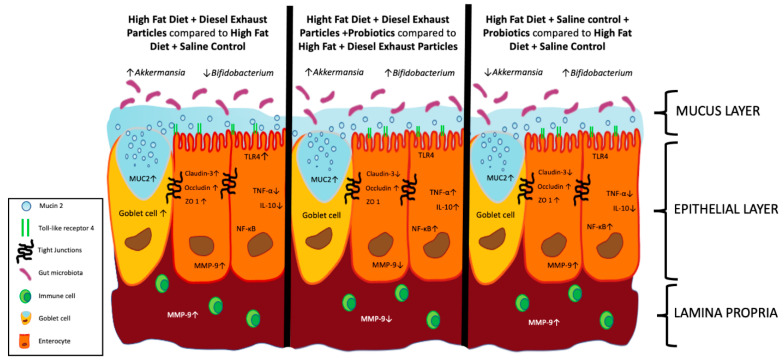Figure 9.
Summary of the effects of inhaled diesel exhaust particles (DEP) and probiotics (PRO) on intestinal integrity and associated microbiota. Exposure to inhaled DEP results increase (↑) Akkermansia and decreased (↓) Bifidobacterium associated with an increase in goblet cell formation and associated MUC2 expression, as well as an increase in claudin-3, occludin, ZO-1, MMP-9, and TLR-4, and a decrease in TNF-α and IL-10 when compared to saline control (CON). Probiotic treatment alters DEP exposure-response characterized by an increase (↑) in Akkermansia and Bifidobacterium and an increase in MUC2, occludin, TNF-α, IL-10, NFκB, and a decrease in claudin-3 and MMP-9. Probiotics without DEP exposure result in decreased (↓) Akkermansia and increase (↑) Bifidobacterium and an increase in MUC2, occludin, ZO-1, MMP-9, and NF-κB, and a decrease in claudin-3, TNF-α, and IL-10.

